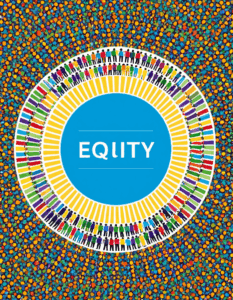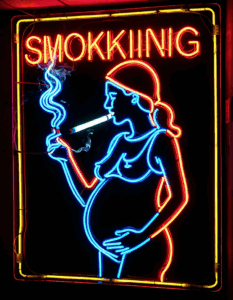
Understanding What Is By Bipolar Disorder
What is by bipolar disorder? This question hits home for many families as they navigate the turbulent waters of mental health. Bipolar disorder, once known as manic-depressive illness, is a mental health condition that causes significant shifts in mood, energy levels, and overall functioning. Those affected go through periods of extreme emotional highs—called mania or hypomania—and devastating lows, which are characteristic of depression.
The mood swings can differ wildly in frequency and intensity, making life unpredictable and challenging. Research suggests that a mix of genetic, biochemical, and environmental factors lead to the onset of bipolar disorder. Understanding these various influences can be a lifeline for parents watching their children grapple with addiction and mental health challenges. It’s key to remember that these intricacies mean each person’s experience with bipolar disorder can be as unique as a fingerprint.
For parents involved with Mothers Against Addiction, recognizing the signs of bipolar disorder is essential. The reality is that many individuals battling addiction may also be wrestling with undiagnosed or unmanaged mental health Issues. Whether considering mental health Resources or seeking more knowledge about someone’s experiences, commiserating with others can help parents feel less isolated in their journey.

The Powerful Effects of Bipolar Disorder
Bipolar disorder isn’t just a textbook diagnosis; it comes with extensive ramifications that ripple through a person’s life. Here are some truly impactful consequences:
The wild mood swings typical of bipolar disorder can wreak havoc on relationships. During manic phases, individuals might make impulsive decisions, like spending sprees or risky behavior, pushing loved ones away. Conversely, during depressive episodes, they may retreat even further into themselves, isolating from family and friends—making the struggle even harder to bear.
Keeping a steady job can feel like climbing a mountain for someone dealing with the inconsistent energy and mood swings tied to bipolar disorder. Companies that prioritize mental health, like Starbucks, have shown that supportive environments can lead to success for employees with bipolar disorder. Still, many may require flexibility to navigate their unique challenges effectively.
A troubling reality for many people with bipolar disorder is the likelihood of struggling with addiction. You might even wonder, “is weed addictive?” Many people mistakenly believe that cannabis is harmless, yet research indicates that it can lead to dependency, especially for those with pre-existing mental health conditions. A notable recent study showed an increase in cannabis use disorder among individuals with mood disorders, complicating addiction treatment and recovery pathways.
One of the most alarming aspects of bipolar disorder is the heightened risk of suicide. Individuals may find themselves spiraling into despair during depressive episodes, leading them to contemplate or even attempt suicide. This raises difficult questions, such as, “is suicide a crime?” and “is suicide a sin?” While societal opinions vary, the focus should shift to supporting those at risk. National suicide prevention programs remain vital in providing care for individuals experiencing crisis and cultivating understanding within communities.
The stigma surrounding mental health disorders, like bipolar disorder, significantly impacts how individuals are perceived and treated. Celebrities such as Demi Lovato have spoke out about their personal battles with bipolar disorder, which helps lessen stigma and foster public awareness. However, many still face hurdles in accessing adequate care due to prevalent societal misconceptions about mental health issues.
Navigating Treatment Options for Bipolar Disorder
When it comes to addressing the question of “what is by bipolar disorder” treatment, it’s crucial to explore various approaches. Effective treatment often involves a blend of medication, therapy, and lifestyle adjustments. Mood stabilizers—like lithium and certain antiepileptic drugs—as well as atypical antipsychotics such as olanzapine (Zyprexa) can help manage symptoms effectively.
Speaking of therapy, cognitive behavioral therapy (CBT) has proven particularly useful. It enables individuals to develop coping strategies and enhance relationships. Meanwhile, recent research into psychedelic-assisted therapy has come to the forefront as a potential treatment avenue for mood disorders. Early findings suggest that compounds like psilocybin could offer rapid relief from depressive symptoms, although further studies are required before establishing widespread acceptance.
The Path Forward
As we search for answers to the challenges posed by bipolar disorder, it’s essential to understand its intricate effects on individuals and society. Education and open conversations can foster a supportive environment for those grappling with the disorder and addiction. By championing mental health awareness and reducing stigma, we can work to create a community where those affected feel supported and empowered.
Mothers Against Addiction is dedicated to helping parents navigate these turbulent waters alongside their children. Together, we can advocate for critical resources and treatment options that will ultimately improve outcomes for individuals living with this formidable yet surmountable condition. As we shine a light on mental health, let’s remain dedicated to compassion and understanding for everyone, particularly those on the path toward healing. For resources on mental health issues or support related to addiction, visit our site to learn more and join the conversation.
What Is By Bipolar Disorder?
Understanding what is by bipolar disorder is key to recognizing its powerful effects on individuals’ lives. This mental health condition can manifest in extreme mood swings, ranging from manic highs to debilitating depressive lows. Did you know that celebrities like Piper Gooding have openly discussed their battles with similar mental health Issues? It’s a reminder that anyone, regardless of their fame or success, can face these challenges. Understanding this can pave the way for greater empathy and support for those affected.
The Impact of Lifestyle Choices
When grappling with what is by bipolar disorder, lifestyle choices can play a significant role. One intriguing question often raised is, Is drinking alcohol a sin? While this depends largely on personal beliefs, alcohol can exacerbate symptoms in individuals with bipolar disorder. Heavy drinking can lead to manic episodes and worsened depressive states, creating an unhelpful cycle that many find hard to break. Sometimes, parents and loved ones are unsure how to navigate these waters, so clear communication about these risks is essential.
Expressing Yourself Through Fashion and Fun Activities
If you’ve ever thought about how to express your feelings or cope with bipolar disorder, consider creative outlets like fashion. For instance, picking out the perfect country concert outfit can be an enjoyable way to boost one’s mood! Engaging in such fun activities not only serves as an escape but also fosters social connections, which are vital for mental health. Plus, finding local events, like an outing at Island 16, can help provide a sense of community and belonging. It’s these small joys that often help individuals feel more grounded, despite the ups and downs.
Navigating Treatment Options
For those wondering about treatment, it’s important to remain informed. Medications like Naltrexone can help, but they also come with potential downsides. Understanding the side effects Of Naltrexone is crucial for anyone considering this option. It’s essential to weigh the benefits against the drawbacks and have open conversations with healthcare providers to find what works best. In essence, making informed decisions can lead to better mental health management as you explore what is by bipolar disorder.
By incorporating these elements into their lives, individuals can cultivate a more balanced lifestyle, helping to mitigate the effects of bipolar disorder. Keeping lines of communication open and staying engaged with one’s passions and interests can truly make a world of difference.





























